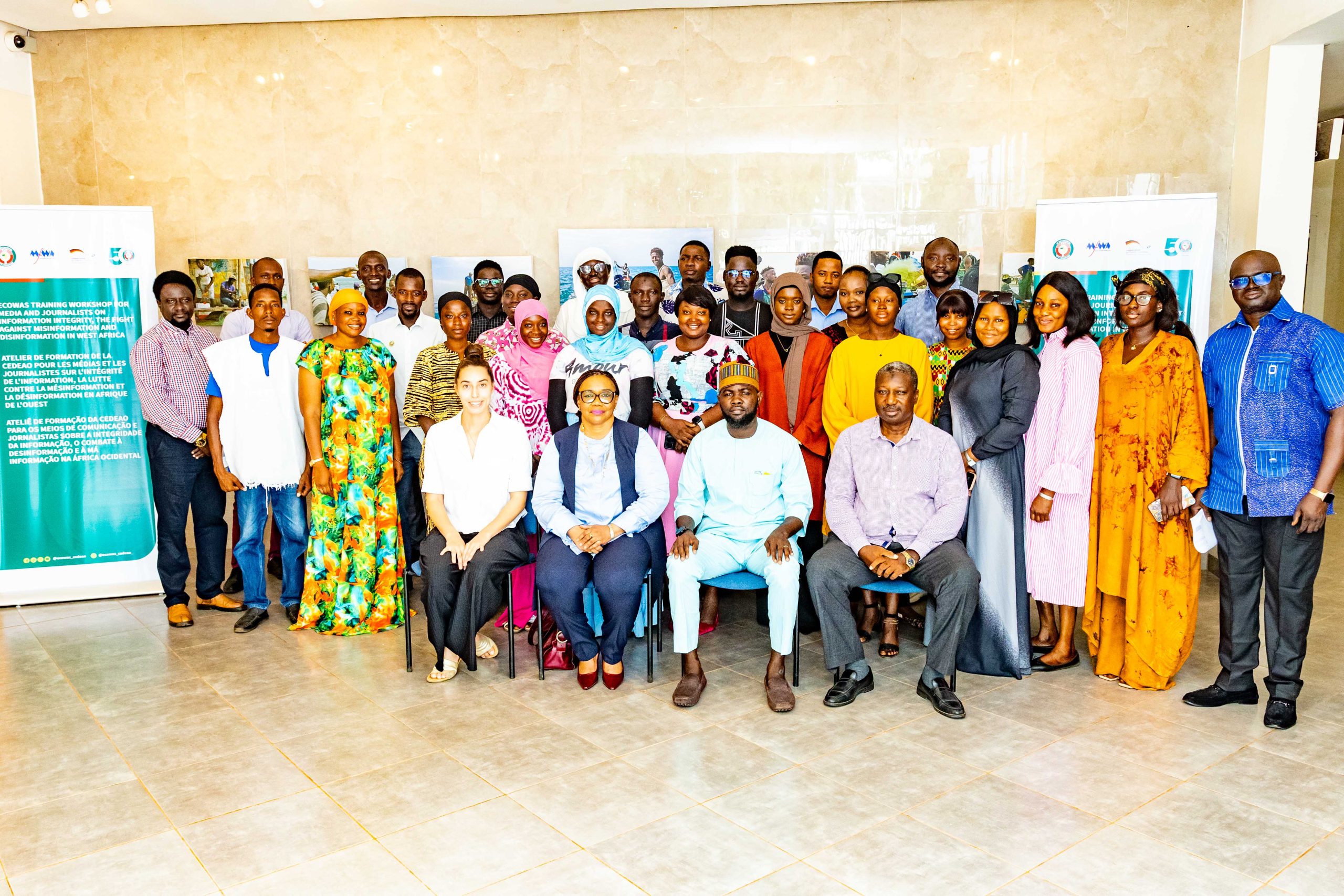Gambiaj.com – (Banjul, the Gambia)- The Representative of the Economic Community of West African States (ECOWAS) in the Gambia Her Excellency Mitta Lily French has said that ECOWAS is committed to support member states and media practitioners in holding the leaders accountable.
Ambassador French made these remarks while presiding over the opening ceremony of a two-day training on Information Integrity organised by ECOWAS in partnership with the Media Foundation for West Africa (MFWA) and the German Government through GIZ.
The training seeks to build Gambian Journalists’ capacity to identify and counter disinformation, strengthen fact-checking skills, and apply OSINT and AI tools for narrative analysis.
The training is also designed to enhance investigative reporting on human rights violations, promote conflict-sensitive and peace journalism, and advance Media Information Literacy (MIL) to empower audiences.
The training is also aimed at fostering collaboration between ECOWAS and media actors to share best practices in promoting peace, democracy, and good governance.
“ECOWAS recognizes the media as an indispensable partner in fostering peace, stability and social cohesion. Our region faces unprecedented challenges – from complex security crises to the rapid spread of harmful and divisive narratives online. Misinformation and disinformation not only distort public discourse but also erode trust in democratic institutions, fuel polarization, and can even spark violence,” Ambassador French told the gathering.
Ambassador French said the dedication of Journalists underscores the vital role the media plays in shaping the collective future.
She cited that the training is more than a training exercise; saying it is a crucial step in strengthening the fabric of member states’ democracies, reinforcing peace and security, and empowering journalists to counter the pervasive threats of misinformation and disinformation that undermine the stability of the West African region.
“This is why ECOWAS Vision 2050 places such a premium on building a peaceful, secure and inclusive region – a region in which democratic governance, social inclusion, sustainable development, and environmental stewardship are mutually reinforcing,” she said.
She believes that none of these aspirations can be achieved without a well-informed public, a resilient media, and a commitment to factual, ethical and responsible reporting.
Ambassador French said the training is a direct response to the rising tide of information disorder in West Africa and the Sahel. She said it reflects the insights from research and consultations that underscore the link between disinformation and ongoing conflicts in our region.
Ambassador French said ECOWAS have already piloted similar workshops in Nigeria and Côte d’Ivoire with remarkable success.
“Now, we are pleased to launch the next phase, beginning here in The Gambia. Together, we will equip state-owned and private media practitioners with the knowledge, skills and tools to uphold information integrity and promote responsible journalism,” she said.
The ECOWAS Rep: said this training represents an opportunity to strengthen the role of Journalists as custodians of truth, champions of transparency, and defenders of democracy.
She urged the participants to use the knowledge gained during the training to improve their reporting practices, to hold power to account ethically and responsibly, and to help nurture a culture of peace and inclusion in the region.
“ECOWAS remains firmly committed to supporting Member States and media practitioners in this endeavour. We will continue to invest in partnerships, capacity-building and innovation to ensure that the information space in West Africa reflects accuracy, fairness and integrity,” she said.
Countering misinformation, disinformation, and false narratives through fact-checking and Media Information Literacy (MIL) is essential in promoting informed public discourse, fostering peace, security and social inclusion, promoting regional integration, strengthening democratic governance and achieving inclusive and sustainable development within the West African sub-region.










